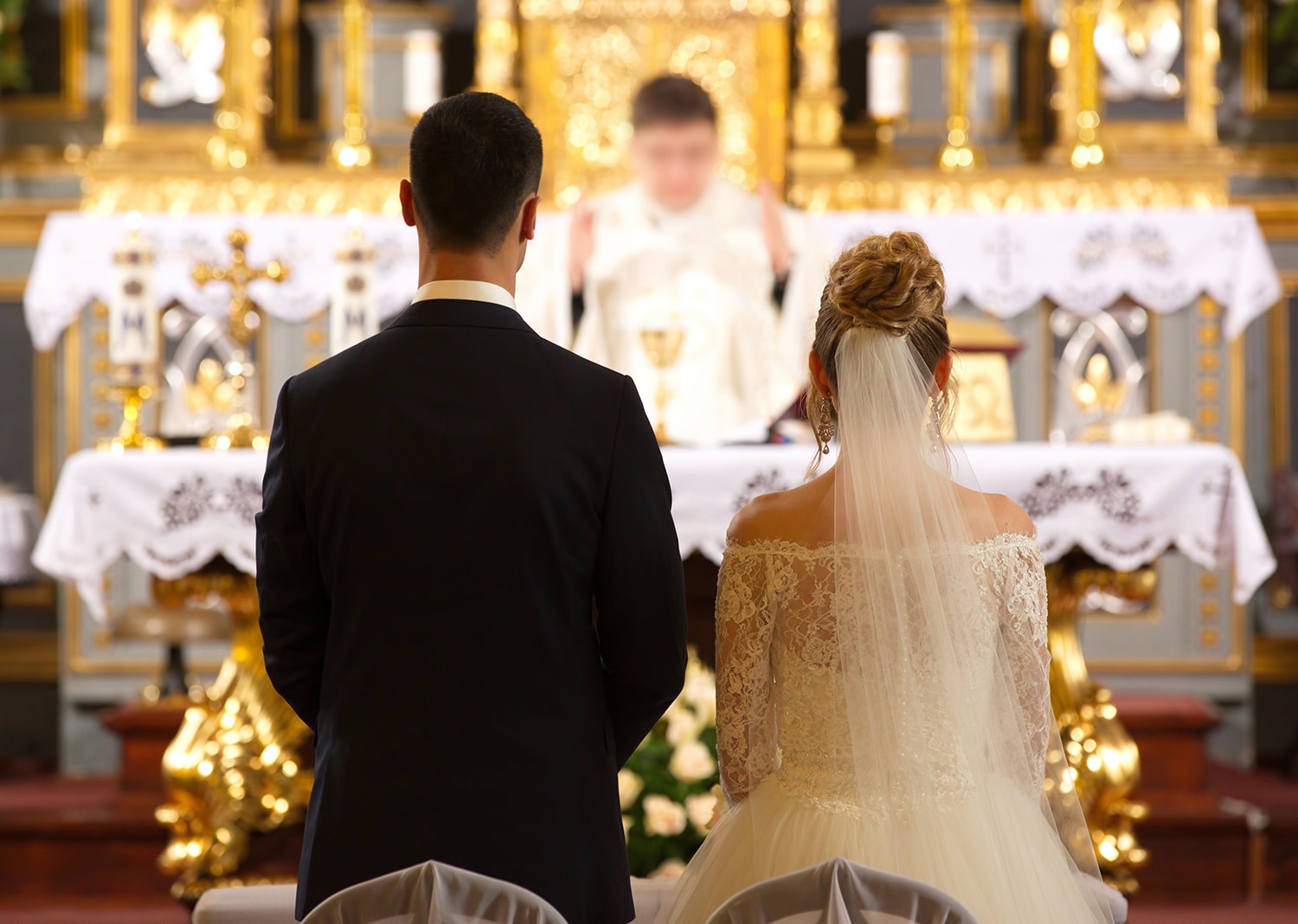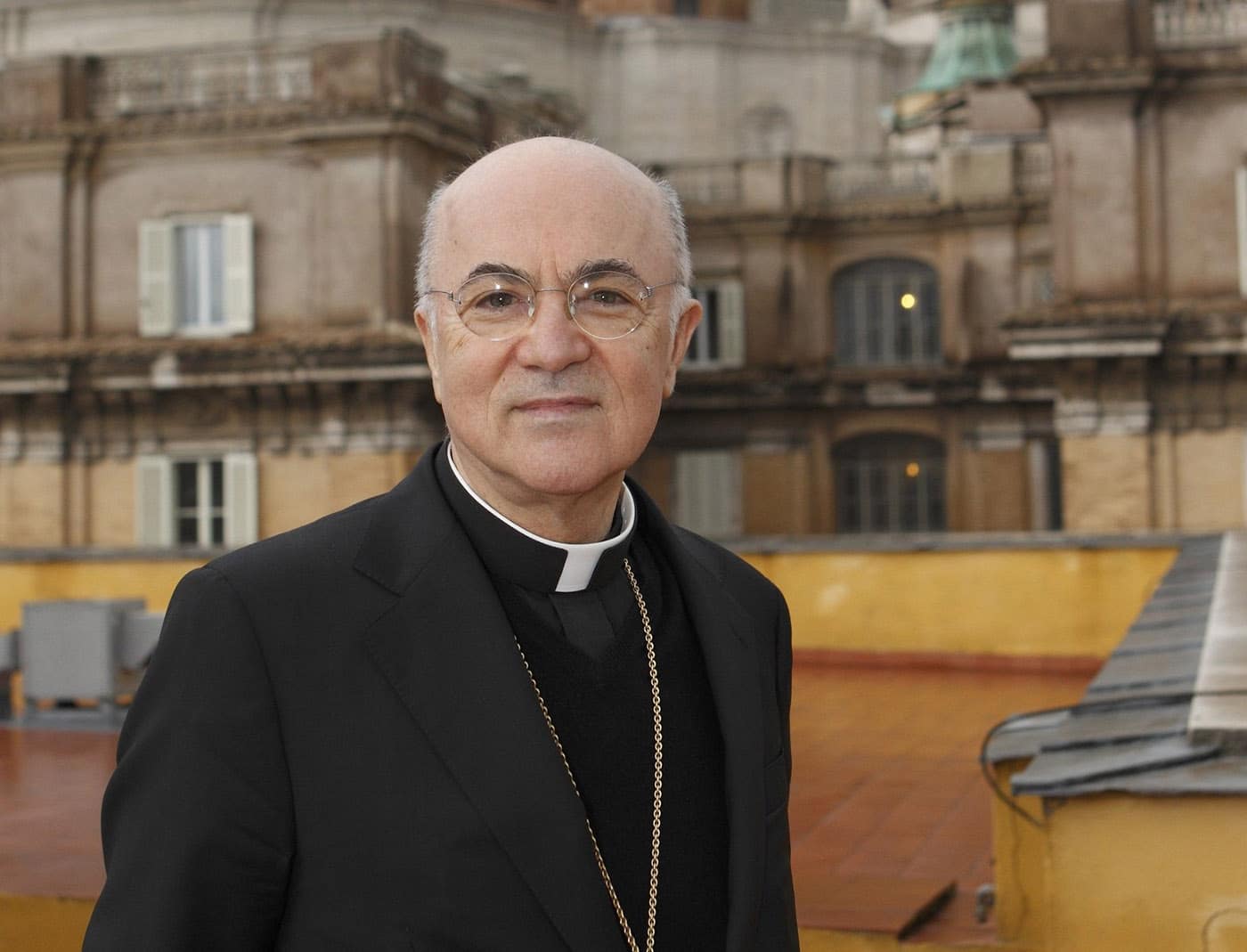It’s hard for me to pick a favorite moment. Was it the bride jumping together with her groom and all her bridesmaids in the red and blue bouncy house? Was it the walking of the bride down the aisle by her father, a longtime dear friend of mine, or his heartfelt speech that left not a dry eye? Was it watching my kids being played with and cared for by the siblings of the bride — kids that I, once upon a long time ago, but then again not all that long ago, had played with and taken care of? Was it the beautiful wedding Mass at the abbey where the bride had been baptized? So many beautiful moments; how could I pick just one?
But then I think again of the Mass. “Magnify the Lord with me; let us exalt his name together,” the cantor proclaimed in the presence of the young man and woman starting their lives together, surrounded by love, filled with hope, and overflowing with joy. This verse of Psalm 34 was picked up by the homilist, who shared how the couple seeks to magnify the Lord through their life and love. I am quite sure that my husband and I were not the only ones to reach for one another’s hands at that moment (which turns out to be my favorite one). Do not all of us wish to magnify the Lord together, regardless of our vocation in life? Or, at the very least, shouldn’t we?
Can we glorify God in our democracy?
I have reflected much on those words in the weeks since that beautiful wedding. In doing so, I have been praying for Rebecca and David, that they may never stop seeking to magnify the Lord in their life together, and for all married couples to be inspired to do the same.
Could we look at one another, as members of the Body of Christ, intertwined in our own particular ways, and say, “Hey, today I am going to work really hard to magnify the Lord. Want to do that with me?”
But I also find myself thinking about the other communities of which I am a part; my family, my parish, my workplace, various committees or groups. Could we, together, commit to those words of the psalmist as earnestly as has this young couple? Could we look at one another, as members of the Body of Christ, intertwined in our own particular ways, and say, “Hey, today I am going to work really hard to magnify the Lord. Want to do that with me?” If we don’t say that regularly — and I’m guessing most of us don’t — why don’t we? This is our communal call to holiness: to glorify our Lord Jesus Christ, and to do so united as one. How many opportunities to do the work of the Lord are we missing simply because we choose not to work together to lift him up?
I feel this especially acutely during this time of great division in our nation. An election year is never all that fun, but a satisfactory option for the Catholic vote this year seems nonexistent. How can we magnify the Lord through our decisions at the ballot box, or through the policies for which we advocate? How can we work together to glorify the Lord through our democracy? These questions, always challenging, are ever more so in our time of factions and discord.
How about in our Church?
And then there’s our Church, which these days makes our political problems look almost tame. For we, as the people of God, cannot apparently even agree on the imprudence of posting, on Vatican channels, artwork created by a credibly accused abuser of women religious. Or on the pain that such imprudence is causing victim-survivors. “It is a fact and public sentiment that abuse hurts at every age,” Suzanne Healy of the National Review Board told the U.S. bishops in Louisville last month. “If we don’t respond compassionately in these cases, it diminishes the trust that we are working so hard to restore in our Church.” Healy’s truth-filled words magnify the Lord. Are we paying attention?
There were so many wonderful moments at that Arkansas wedding a few weeks ago. The Body of Christ is stronger because of Rebecca and David’s commitment to one another in the sacrament of marriage, and because of their desire to magnify the Lord and together exalt His name.
How much stronger would all of our communities be — how much holier would our Church be — if we, too, could unite as a people, as disciples, around those words?







